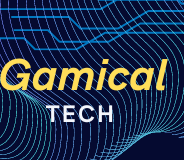
The Internet of Things (IoT) is poised to transform the healthcare industry in profound ways, creating a future where patient care is more efficient, personalized, and accessible. By leveraging connected devices, data analytics, and real-time communication, IoT is paving the way for a new era of healthcare that enhances patient outcomes and streamlines healthcare operations.
Understanding IoT in Healthcare
IoT in healthcare refers to the integration of various connected devices that collect, transmit, and analyze health-related data. These devices range from wearables and remote monitoring tools to smart hospital equipment, all designed to provide healthcare providers with real-time insights into patient health. The ability to gather and analyze data continuously allows for proactive and personalized care, ultimately improving patient experiences and outcomes.
Key Innovations Driving IoT in Healthcare
1. Remote Patient Monitoring
Remote patient monitoring (RPM) is one of the most significant advancements in healthcare IoT. It allows healthcare providers to track patients’ vital signs and health metrics from the comfort of their homes, reducing the need for frequent hospital visits.
- Wearable Devices: Devices like smartwatches and fitness trackers (e.g., Fitbit, Apple Watch) monitor heart rate, activity levels, sleep patterns, and more. They can send this data to healthcare providers in real time, enabling timely interventions when necessary.
- Chronic Disease Management: IoT devices can be particularly beneficial for patients with chronic conditions such as diabetes or hypertension. For example, connected glucose monitors can provide real-time blood sugar readings, alerting patients and doctors if levels fall outside the normal range.
2. Telehealth Services
The COVID-19 pandemic accelerated the adoption of telehealth services, and IoT plays a crucial role in its effectiveness.
- Virtual Consultations: IoT-enabled devices can facilitate virtual consultations by allowing patients to share their health data with providers seamlessly. This not only enhances convenience but also enables healthcare professionals to make informed decisions based on accurate data.
- Remote Diagnostics: Innovative IoT devices can perform diagnostic tests remotely, such as digital stethoscopes that transmit heart and lung sounds to doctors for evaluation. This capability enhances the quality of care while reducing the burden on healthcare facilities.
3. Smart Hospital Systems
IoT technology is revolutionizing hospital operations, improving efficiency, and enhancing patient safety.
- Asset Tracking: Hospitals can utilize IoT devices to track medical equipment, ensuring that essential tools are readily available when needed. This reduces downtime and improves workflow within healthcare facilities.
- Patient Flow Management: IoT solutions can monitor patient movements throughout the hospital, optimizing bed allocation and reducing wait times for patients. Real-time data analytics helps administrators make informed decisions about resource allocation and staffing.
4. Personalized Treatment Plans
IoT enables the development of personalized treatment plans tailored to individual patients.
- Data-Driven Insights: By continuously monitoring patients’ health data, healthcare providers can gain insights into how different treatments affect specific individuals. This allows for adjustments in treatment plans based on real-time feedback, ultimately leading to better health outcomes.
- Genomic Data Integration: The integration of IoT with genomic data can provide valuable information for precision medicine. By analyzing a patient’s genetic makeup alongside their health data, providers can recommend targeted therapies that are more likely to be effective.
Benefits of IoT in Healthcare
1. Enhanced Patient Engagement
IoT technology encourages patients to take an active role in managing their health. By providing access to real-time data and personalized insights, patients can make informed decisions about their treatment and lifestyle choices.
2. Improved Efficiency
Healthcare providers can streamline operations through IoT integration, reducing administrative burdens and allowing for more time to focus on patient care. Automated processes and real-time monitoring help optimize workflows and resource allocation.
3. Better Health Outcomes
With continuous monitoring and data-driven insights, IoT can lead to timely interventions and more effective treatments. This proactive approach to healthcare can significantly improve patient outcomes, especially for those with chronic conditions.
4. Cost Reduction
IoT can help reduce healthcare costs by minimizing hospital readmissions, optimizing resource use, and enabling preventive care. By addressing health issues before they escalate, IoT contributes to a more sustainable healthcare system.
Challenges and Considerations
While the potential of IoT in healthcare is immense, several challenges must be addressed:
- Data Privacy and Security: Protecting patient data is paramount. As more devices connect and share sensitive information, robust security measures must be implemented to prevent data breaches.
- Interoperability: Ensuring that different IoT devices and systems can communicate effectively is crucial for seamless integration into existing healthcare infrastructures.
- Regulatory Compliance: Healthcare organizations must navigate complex regulations surrounding patient data and device safety to ensure compliance while adopting new technologies.
Conclusion
The future of healthcare is increasingly intertwined with IoT, offering unprecedented opportunities to enhance patient care, streamline operations, and improve health outcomes. As technology continues to evolve, the integration of IoT in healthcare will play a pivotal role in creating a more connected and efficient healthcare ecosystem. By addressing the challenges and leveraging the benefits, healthcare providers can harness the power of IoT to deliver better, more personalized care to patients, ultimately leading to a healthier society.
visit: gamicaltech.com
